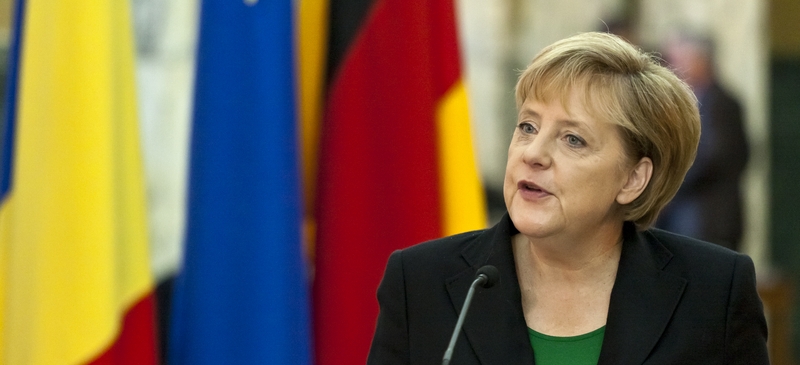
Power struggle: Is Germany's constitution the real bar to the euro rescue?
12th September 2012, 10am in Germany. Bond traders in London and Frankfurt are staring at their screens. Once again, the fate of the eurozone seems to be hanging in the balance.
In the sleepy west German town of Karlsruhe, eight red-robed judges take a seat in front of pale wood panelling. One of them studiously reads from a prepared sheet: “In the name of the people…” he begins, before explaining something about article eight, paragraph five, clause one. German newspapers and broadcasters stand ready to translate the meaning of the latest verdict. The federal constitutional court has ruled that the European Stability Mechanism (ESM), the eurozone’s permanent bailout fund, and the discipline-imposing fiscal compact are not prima facie incompatible with the German constitution. Those asking for a temporary injunction against the ratification of these central planks of the euro rescue effort have lost their case. Europe breathes a sigh of relief. Bond yields fall. The judges retire to work out the next convoluted verdict.
Germans are now beginning to ask whether this revered court is an obstacle to the efforts led by chancellor Angela Merkel to mount the rescue of the euro. But challenging the role of the court would go against deeply held principles, too.
Britons, who are used to prime ministers taking snap decisions and parliament defending its primacy, wonder why a bunch of unaccountable judges holds such power. Germans, however, see their constitutional court as more of a political body than a legal one. It is one of the five pillars on which the post-war constitution rests, alongside the two chambers of parliament, the government and the (rather toothless) federal president. Germans say they respect the court more than just about any other political body and they make good use of it. They regularly ask Karlsruhe to rule on highly sensitive issues, ranging from social benefit levels to whether German soldiers can be sent into warzones.
The constitutional court has been asked to pass judgement on each EU treaty since the 1970s, as well as various laws and directives. Virtually every step in the euro rescue efforts since 2010 has ended up in Karlsruhe:
7th September 2011: The court waves through the first Greek bailout and the European Financial Stability Facility (EFSF, the ESM’s predecessor). But it warns that no German government or parliament can create open-ended liabilities, which may include eurobonds (debt issued jointly by the governments of the eurozone) or a fiscal union (some shared tax and spending powers across the currency bloc). This would undermine the country’s fiscal sovereignty and democracy.
28th February 2012: The court declares unconstitutional a new body of nine MPs intended to speed up the use of the EFSF.
19th June 2012: The court slaps down the government for not informing MPs about its negotiations on the ESM. Parliament must be given the opportunity to influence talks. Given some MPs’ inclination to play politics with the crisis, this could complicate efforts to save the euro.
12th September 2012: The court says the ESM and the fiscal compact can go ahead provided Germany gets legally watertight reassurances that its ESM liabilities will not exceed €190 billion without prior consent and that ESM executives cannot hide information. The liability cap should not be a problem as long as the European Central Bank can step in alongside the ESM to rescue huge debtors, such as Italy and Spain. But the court has already indicated it may question whether the ECB is allowed to buy the bonds of struggling euro members.
Some Germans—rightly, I think—are becoming fed up with the constraints that the court keeps imposing on Angela Merkel’s policies. They accuse the judges of usurping the authority of democratically elected leaders while sticking to old-fashioned, statist and eurosceptic principles. Politicians from across the spectrum have been calling for a new pro-EU constitution to be adopted by a referendum.
However, this would not be a quick path towards eurobonds or a fiscal union. Working out a new constitution would take at least a year. The ensuing referendum might not yield the desired result. Even if a new constitution did allow for eurobonds, most Germans and their leaders would still look at them sceptically. And even if Germany decided that eurobonds were a good idea, the Dutch, Finns or Austrians might disagree.
However, the debate has warned Karlsruhe not to interpret the constitution too strictly and to leave some room for Merkel and her government. The 12th September verdict suggests the court has understood the message.
